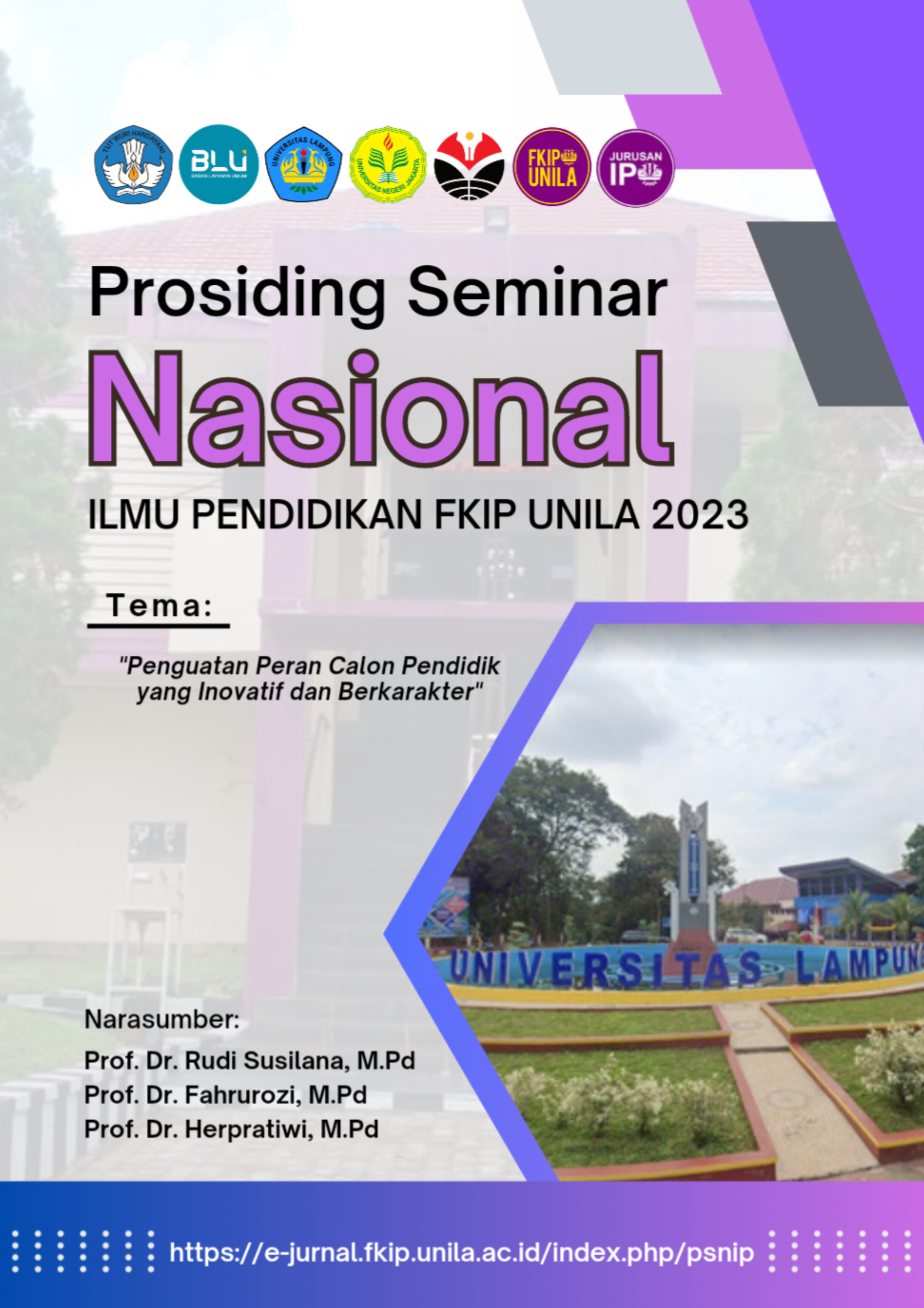Implementasi Pembelajaran Di Lembaga Paud Pasca Pandemi Covid-19 Di Kecamatan Tanjung Karang Pusat Tahun Ajaran 2022/2023
Kata Kunci:
early childhood education, learning implementation, post-pandemicAbstrak
This study aims to determine the implementation of learning in early childhood education institutions after the Covid-19 pandemic. This research uses a quantitative approach with descriptive methods. The population in this study amounted to 111 teachers in Tanjung Karang Pusat District, Bandar Lampung City, the sampling technique used simple random sampling technique, with a total sample of 33 teachers. The results of this study show that the implementation of learning after the Covid-19 pandemic was good (42.4%). With three dimensions, namely: (1) learning planning is included in the good category (45.5%) the teacher makes teaching materials and materials according to interests, manages learning time efficiently, and prepares Daily Learning Implementation Plans (RPPH) before learning; (2) the learning process was carried out very well (54.55%), namely the teacher took into account the adequacy of learning time, paid attention to the adequacy of the number and variety of types of teaching materials and educational game tools with students, and prioritized interactions between children and peers, children with educators, as well as children and their environment; (3) the assessment of post-pandemic learning was carried out quite well (48.58%) with an assessment that covered all aspects of development which were formulated in attitudes, knowledge and skill competencies, an assessment based on clear procedures and criteria, as well as objectives, an assessment covering all aspects of growth and child development, both attitudes, knowledge, and skills. Recommendations for further research are to be able to analyze factors that can improve learning planning, learning processes, and learning assessment.





